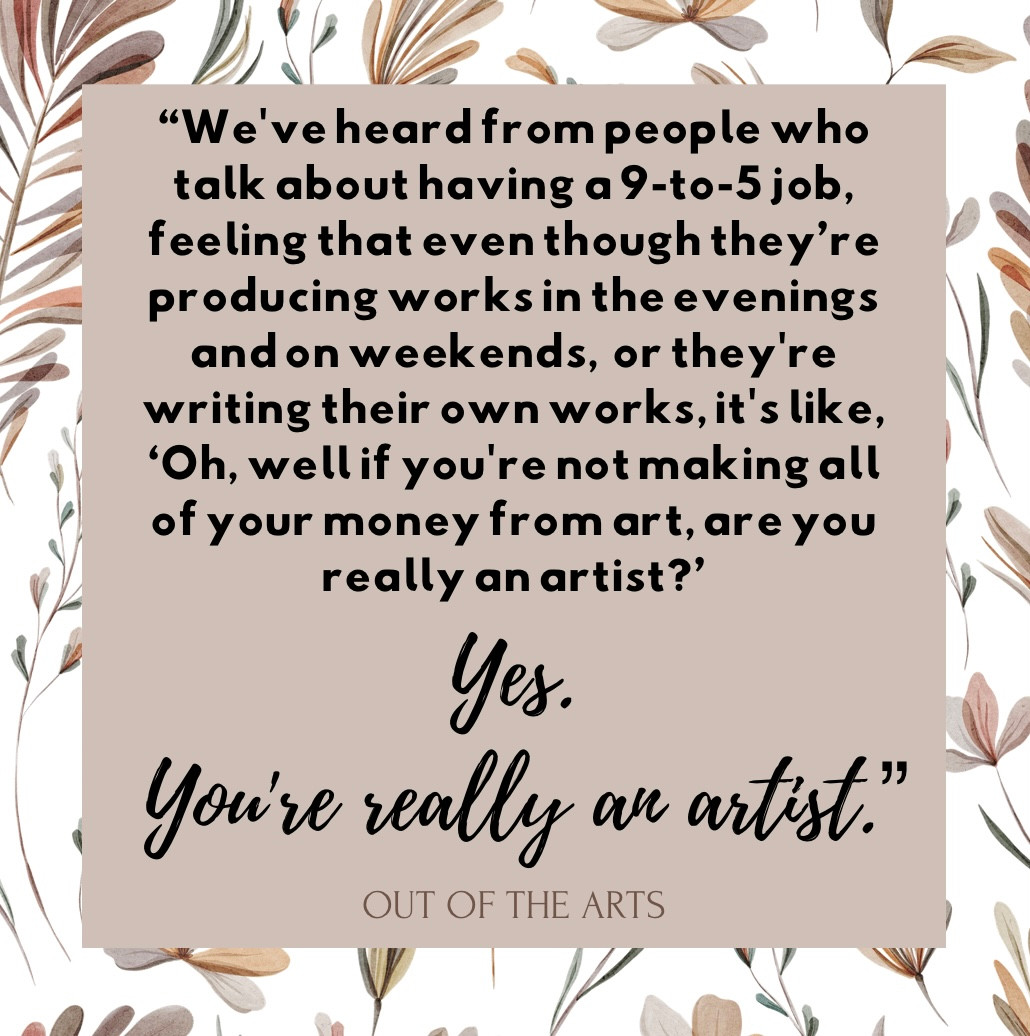
Are you feeling messy, stressy, and depressy lately? Thinking of leaving your arts job? You’re not the only one. Widespread job loss, global pandemic and less sunlight can all contribute. But there is a major thing it feels like no one ever talks about: the emotional toll of switching careers. Whether you choose to pursue a career in a new field, or you are forced to by circumstances beyond your control, and whether the decision is permanent, temporary, or concurrent, going in a new direction with your career is never easy.
As artists and performing arts professionals, our career choice is driven not only by interest or need, but by talent and passion. That makes it easy to internalize, and extraordinarily difficult to separate ourselves from. Every career change presents difficult thoughts and emotions along the way, but leaving a career in the arts, or even stepping away temporarily or part-time, can feel like you’re giving up on yourself and your dreams. The quick answer to this is: You’re not. But there’s a lot more to it.

Here are some of the most common emotional difficulties people go through when leaving their arts career.
The shame we feel in leaving our arts career can be internal or external…or both. It feels like performers, in particular, are fed a cocktail of shame right from the beginning. It seems inherent in the industry that if you are not pursuing your talent as a full-time career that you are not a true artist, and you probably don’t have the mettle or talent to make it. Let’s cut this off at the pass: This is simply untrue. We choose our paths, and there is absolutely no shame in pursuing an art career part-time. Sometimes we pursue dual interests, multiple passions/talents, or simply more or consistent pay. There is nothing wrong with doing this to take care of yourself. Do not let the industry place shame on your decision to pursue anything else. Do what’s best for you.
There can also be internal shame that comes from feeling like we’re letting friends, family, and ourselves down. Musicians, dancers, actors, designers – anyone with a strong passion and artistic talent that has put a lifetime of money and expectation, not to mention blood, sweat, and tears, into their talent since childhood, is likely to feel a strong sense of duty to people who have supported you along your journey. Let’s start by saying: this is normal. But it doesn’t have to be that way. Your talent is not who you are, it’s just a small part of the bigger picture.
Most of us started out on this path long before college or even high school. Some of us started with instruments in our hands or dance shoes on our feet not long after we learned to walk. Some of us felt lost until we found the community that accepted us in our formative years. It doesn’t matter how you started in the industry, because once you’ve made the choice to pursue it, it’s a part of you. The validation we feel from being a part of this community and working with people who understand our love and passion for something so intangible can be a balm in the most difficult times. There’s also the super fun aspect of seeing the look on someone’s face when you explain to them that you are a designer, or producer, or dancer. To people outside the industry, we are rare unicorns…and frankly, it feels good. But you know what? It’s not all we are.
Separating your personality from your career is possible. What we do is not who we are. It may be difficult to hear, but we promise that you can find fulfillment outside of your current job. If you’re currently displaced due to COVID-19, or if you have been feeling like your career is no longer serving you in the way you need it to, rest assured that it is possible to find interest, fulfillment, and passion outside of the performing arts. How you may ask? Because your day-to-day career can change, but the heart of you will not. If you’re having trouble separating out the you from what you do, check out this article.
Change is terrifying for most people. As you approach something new, there can be major fear, anxiety, and imposter syndrome that accompanies you. Again, this is normal and valid. Even for those of us who have made it to the other side and feel confident in what we do, these feelings can still pop up.
The trick is not letting them overwhelm you. Especially as performing arts professionals, we have some amazing skills and abilities that can offer a lot of value in a new job. Embrace this. Embrace what you’ve learned and the growth you have accomplished in your performing arts career, and prepare to continue that trajectory in your new job.
Look, we would love to tell you that you will jump into your new job and everything will fall into place for you. And that’s not to say this isn’t possible… but it is unlikely. For most, it takes years to figure out and come to grips with the change. Yes, multiple years. If after six months or a year you still feel a little unsure or unsettled, or you feel the pull back to your previous industry — it’s okay. Just like with any habit or lifestyle, it takes time to let go of the old and embrace the new. If your gut tells you you are in the wrong place or on the wrong path, listen to it. But if you’re just missing the past, if you just simply are in an adjustment period, get to the heart of what you need and what you want. It may not mean going back, but going forward.
It’s okay to miss some thing and not want it back. It’s also okay not to miss it. Only you can take stock of your own feelings and make the right decision for yourself.
These are just some of the things people typically feel as they’re going through the career transition. You may feel all of them. You may not feel any of them.You may feel different feelings in addition to or in place of these. But know that either way, no matter what you’re feeling, it’s valid and we understand. In the meantime, we’re always here to help. Make sure to follow us on social media @outofthearts. Give us a like, subscribe to our podcast, and please leave a comment below with questions or feedback – comments help us connect with you and build more content to help this community!
Ottavio Gesmundo: Interview with a Multifaceted Performer
April Clark: Interview With The Reach And Teach Co-Founder


Out of the Arts empowers performing arts professionals to recognize their full potential and develop their transferable skills. Through workshops and coaching, we rebrand individuals to successfully bridge the gap into new industries. Our mission is to bridge the gap between arts careers and non-arts professional careers. By identifying transferable skills, examining overlapping interests, promoting creativity in the workplace, and incorporating arts into civic engagement, we aim to help communities and individuals thrive. Beth Parthum & Amy Shake are both former performing arts professionals who, through the rough and tumble game of life, learned that a career path doesn't have to be forever, no matter the amount of talent, passion, or knowledge. Out of the Arts came about as a result of our own personal experiences and conversations as we switched from full-time arts careers to non-arts careers. In short, we want to give you what we didn't have as we navigated the difficult path from the arts world to the non-arts world: a reassuring community and tools to succeed no matter where your path leads you.
Read Full Profile© 2021 TheatreArtLife. All rights reserved.

Thank you so much for reading, but you have now reached your free article limit for this month.
Our contributors are currently writing more articles for you to enjoy.
To keep reading, all you have to do is become a subscriber and then you can read unlimited articles anytime.
Your investment will help us continue to ignite connections across the globe in live entertainment and build this community for industry professionals.